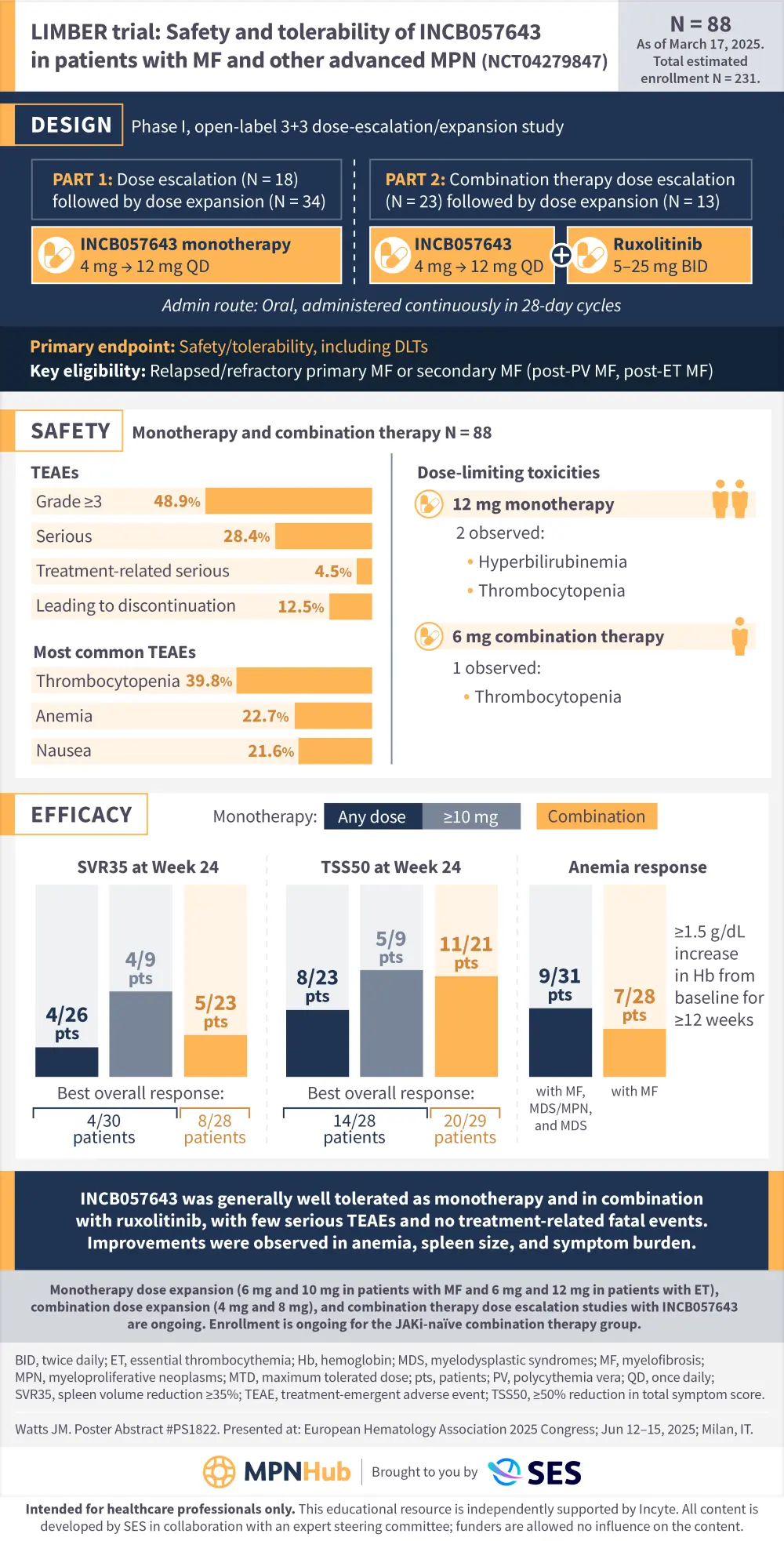All content on this site is intended for healthcare professionals only. By acknowledging this message and accessing the information on this website you are confirming that you are a Healthcare Professional. If you are a patient or carer, please visit the MPN Advocates Network.
The mpn Hub website uses a third-party service provided by Google that dynamically translates web content. Translations are machine generated, so may not be an exact or complete translation, and the mpn Hub cannot guarantee the accuracy of translated content. The mpn and its employees will not be liable for any direct, indirect, or consequential damages (even if foreseeable) resulting from use of the Google Translate feature. For further support with Google Translate, visit Google Translate Help.
The MPN Hub is an independent medical education platform, sponsored by AOP Health, GSK, Sumitomo Pharma, and supported through educational grants from Bristol Myers Squibb and Incyte. Funders are allowed no direct influence on our content. The levels of sponsorship listed are reflective of the amount of funding given. View funders.
Now you can support HCPs in making informed decisions for their patients
Your contribution helps us continuously deliver expertly curated content to HCPs worldwide. You will also have the opportunity to make a content suggestion for consideration and receive updates on the impact contributions are making to our content.
Find out more
Create an account and access these new features:
Bookmark content to read later
Select your specific areas of interest
View MPN content recommended for you
LIMBER: Safety and tolerability of INCB057643 in patients with MF and other advanced MPN
Do you know... What was the most common TEAE in the LIMBER trial of INCB057643 in patients with MF and other MPN?
Bromodomain and extra-terminal (BET) proteins regulate expression of oncoproteins central to the pathophysiology of several hematologic malignancies, including myelofibrosis (MF) and other myeloproliferative neoplasms (MPN), making BET inhibitors (BETi) an important area of research for patients with such malignancies.
Here, we present a visual abstract outlining the trial design and summarizing key efficacy and safety data to date from the phase I LIMBER (NCT04279847) trial evaluating INCB057643, an oral, small-molecule BETi, as monotherapy in adults with relapsed/refractory MF, essential thrombocythemia, myelodysplastic syndromes, or myelodysplastic syndrome / myeloproliferative neoplasm overlap syndromes, or as combination therapy with ruxolitinib in adults with MF and a suboptimal response to ruxolitinib.

This educational resource is independently supported by Incyte. All content was developed by SES in collaboration with an expert steering committee. Funders were allowed no influence on the content of this resource.
References
Please indicate your level of agreement with the following statements:
The content was clear and easy to understand
The content addressed the learning objectives
The content was relevant to my practice
I will change my clinical practice as a result of this content


